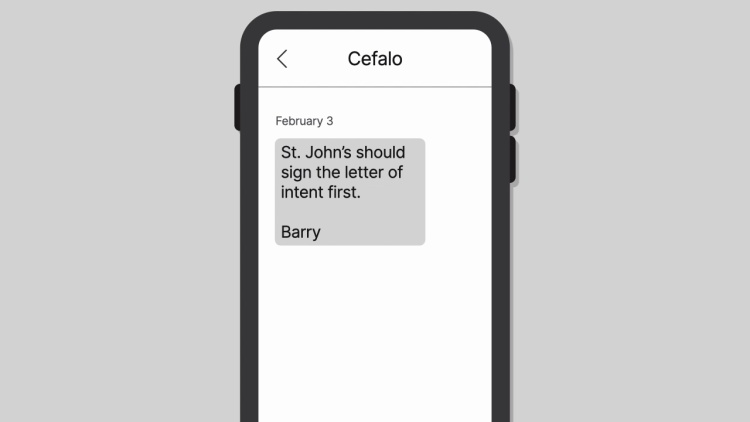St. John’s Holdings, L.L.C. v. Two Electronics, L.L.C.
Massachusetts Land Court
2016 WL 1460477 (2016)

- Written by Mary Phelan D'Isa, JD
Facts
Through their broker-agents, St. John’s Holdings, L.L.C. (SJH) (plaintiff) and Two Electronics, L.L.C. (defendant) negotiated the sale of a commercial building to SJH. The negotiations involved the parties meeting in person and exchanging electronic communications, including text messages and emails with attached written letters of intent. On February 2, 2016, SJH sent an email to Two Electronics with an attached third and final letter of intent. Before signing, Two Electronics instructed its broker, Timothy Barry, to have SJH sign it first. On February 3, Barry sent a text message to SJH’s broker making this request and signed the text message, “Tim.” That same day, SJH’s broker sent Barry a text message confirming the request and asking to meet that day. During that meeting, SJH’s broker gave Barry the final offer signed by SJH for Two Electronics to sign. However, on February 2, the day before, Two Electronics had received an offer from a third party to buy the property. On February 3, Two Electronics decided to sell the property to the third party instead of to SJH and accepted the third party’s offer. SJH sued Two Electronics, and Two Electronics moved to dismiss on the grounds that either the parties never reached a final agreement (which the court found they did) or that the agreement was unenforceable under the statute of frauds.
Rule of Law
Issue
Holding and Reasoning (Foster, J.)
What to do next…
Here's why 911,000 law students have relied on our case briefs:
- Written by law professors and practitioners, not other law students. 47,100 briefs, keyed to 997 casebooks. Top-notch customer support.
- The right amount of information, includes the facts, issues, rule of law, holding and reasoning, and any concurrences and dissents.
- Access in your classes, works on your mobile and tablet. Massive library of related video lessons and high quality multiple-choice questions.
- Easy to use, uniform format for every case brief. Written in plain English, not in legalese. Our briefs summarize and simplify; they don’t just repeat the court’s language.





